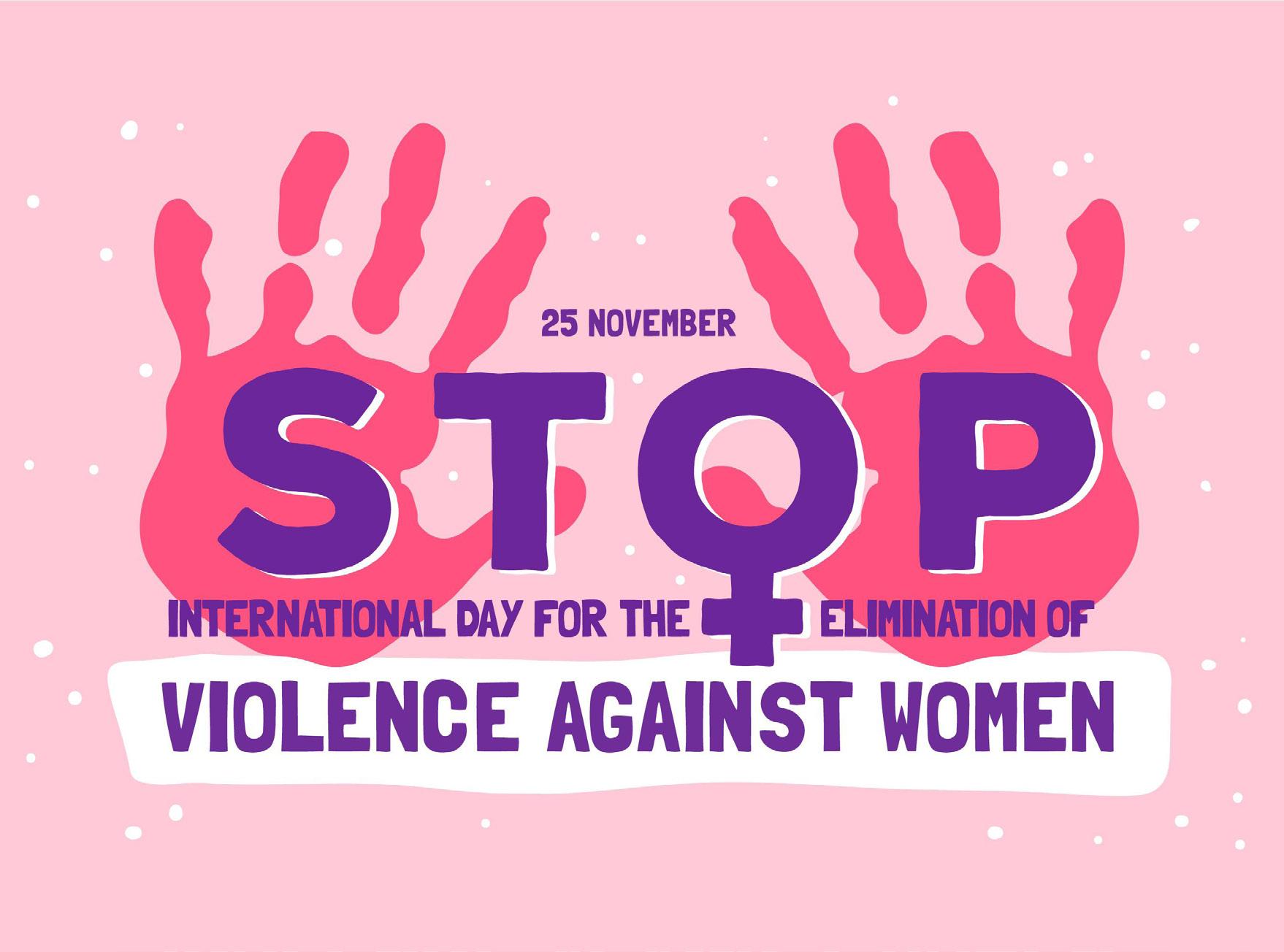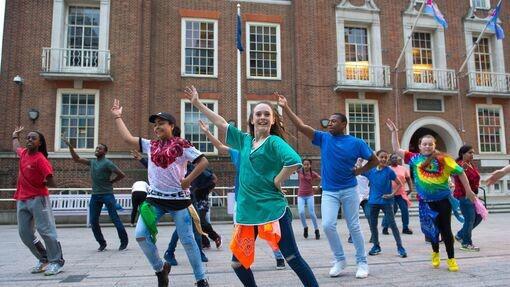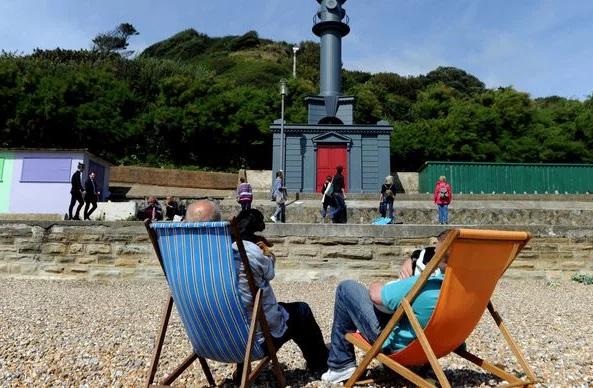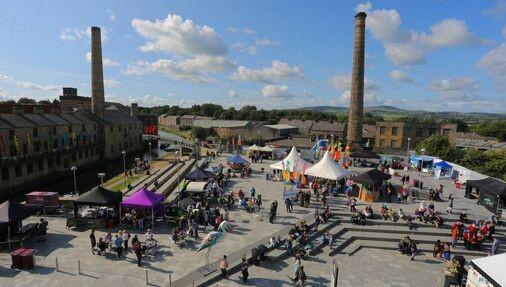
7 minute read
DOMESTIC VIOLENCE AND ITS IMPACTS
- By Saida Egeh
Domestic violence is a serious issue that affects millions of women around the world, including in London. It is a type of violence that occurs within the context of a relationship, and it can take many forms, including physical, emotional, sexual, and financial abuse. Domestic violence can have a devastating impact on a woman’s mental health, and it is important to understand the ways in which it can affect women in London.
Advertisement
Firstly, it is important to understand the scope of the problem. According to the Metropolitan Police, there were 80,000 domestic violence incidents reported in London in the year ending March 2020. This is a significant increase from the previous year, and it is likely that many more incidents go unreported. Domestic violence can happen to anyone, regardless of their age, race, or socio economic status, and it can have serious consequences for a woman’s mental health.
One of the most common ways that domestic violence can affect a woman’s mental health is through trauma. Trauma is a psychological response to a deeply distressing or disturbing event, and it can have longlasting effects on a person’s mental and physical health. Domestic violence can be traumatic for women, particularly if they have experienced repeated or severe abuse.
Women who have experienced domestic abuse may develop post-traumatic stress disorder (PTSD), which can include symptoms such as flashbacks, nightmares, and feelings of anxiety or depression. PTSD can have a significant impact on a woman’s ability to function in her daily life, and it can also affect her relationships with others.
In addition to trauma, domestic violence can also cause depression and anxiety. Women who have experienced domestic violence may feel isolated, powerless, and hopeless, and these feelings can contribute to the development of depression and anxiety. Depression is a mood disorder that can cause a persistent feeling of sadness, hopelessness, and loss of interest in activities that were once enjoyable.
Anxiety is a mental health disorder that can cause feelings of worry, fear, and panic. Women who have experienced domestic violence may feel anxious about their safety, their ability to support themselves and their children, and their future.
Domestic violence can also have a negative impact on a woman’s self-esteem and self-worth. Women who have experienced domestic abuse may feel ashamed, guilty, and blame themselves for the abuse they have endured. They may also feel as though they are not worthy of love and respect, and this can affect their ability to form healthy relationships in the future. Low self-esteem can also contribute to the development of mental health issues such as depression and anxiety. Finally, domestic violence can also lead to substance abuse and addiction. Women who have experienced domestic abuse may turn to drugs or alcohol to cope with the emotional pain they are experiencing. Substance abuse can have profound consequences for a woman’s mental and physical health, and it can also put her at risk for other types of harm, such as accidents or violence.
Domestic violence is a serious issue that affects many women in London. It can have a devastating impact on a woman’s mental health, and it is important to understand the ways in which it can affect women. Domestic violence can cause trauma, depression, anxiety, low self-esteem, and substance abuse, among other issues. Women who have experienced domestic violence may need professional help to overcome these mental health challenges, and it is important for them to know that they are not alone.
There are many resources available in London for women who have experienced domestic violence, including hotlines, counselling services, and support groups. By speaking out about the issue of domestic violence and supporting those who have experienced it.
Islington Council is taking significant steps to support victims of domestic violence in the borough. The council recognizes that domestic violence is a serious problem that affects many people in the community, and they are committed to providing resources and support to those who need it.
One of the keyways that Islington Council is supporting victims of domestic violence is through the Islington Integrated Domestic Abuse Service (IDAS). IDAS provides a range of services to victims of domestic violence, including counselling, advocacy, and practical support. The service is available to anyone who lives in Islington and is experiencing domestic abuse, regardless of their gender, age, or ethnicity.
IDAS also works closely with other agencies in the community, such as the police and health services, to ensure that victims receive the support they need.
Another way that Islington Council is supporting victims of domestic violence is through their housing services. The council recognizes that domestic violence can often result in the need for safe, affordable housing, and they are committed to providing this to victims.
The council has a dedicated team of housing officers who work with victims of domestic violence to ensure that they can access safe and suitable housing. They can also provide financial assistance and support with the legal process of obtaining a restraining order or injunction.
Islington Council is also committed to raising awareness of domestic violence in the community. They work with schools, community groups, and other organizations to educate people about the signs of domestic violence and how to seek help if they or someone they know is experiencing abuse. The council also participates in national campaigns, such as the White Ribbon Campaign, to raise awareness of domestic violence and promote healthy relationships.
If you or someone you know is experiencing domestic violence in Islington, there are several ways to get help. The first step is to call the police on 999 if you are in immediate danger. If you are not in immediate danger, you can contact IDAS on 0808 801 0660 for support and advice. IDAS is available 24 hours a day, 7 days a week, and all calls are confidential.
You can also contact Islington Council’s housing services for support with safe housing. You can do this by calling the council’s housing options team on 020 7527 2000 or by visiting the council’s website.
It is important to remember that you are not alone if you are experiencing domestic violence. There are many organizations and agencies, including Islington Council, that are here to support you. You do not have to suffer in silence, and there are steps that you can take to protect yourself and your family. If you are in immediate danger, call the police on 999. If you are not in immediate danger, reach out to IDAS or Islington Council’s housing services for support and advice. We can work towards creating a safer and healthier community for everyone
UNDERSTANDING RAMADAN: A GUIDE TO THE MUSLIM HOLY MONTH

By Saida Egeh
Ramadan is an important month in the Islamic calendar, and it is the holiest month for Muslims worldwide. It is a time of spiritual reflection, devotion, and selfdiscipline, and it plays an essential role in the lives of Muslims around the world.
What is Ramadan?
Ramadan is the ninth month of the Islamic calendar, and it is observed by Muslims worldwide. It is a time of fasting, prayer, and reflection. During Ramadan, Muslims fast from sunrise to sunset, abstaining from food, drink, smoking, and engaging in any sexual activity during the daylight hours.
How does it help and support Muslim people?
Ramadan provides a unique opportunity for Muslims to deepen their faith, reflect on their actions, and strengthen their community bonds. Muslims believe that fasting during Ramadan is an act of worship that demonstrates devotion and submission to Allah (God) as a fundamental principle of Islam. It is also a time for self-discipline and self-control, which can help Muslims develop their willpower and break bad habits.
Ramadan is also a time for Muslims to practice empathy and show solidarity with those less fortunate. Fasting helps Muslims empathize with those who may not have access to regular meals and serves as a reminder to be grateful for what they have.
Charity is also an essential part of Ramadan. Many Muslims choose to give to those in need during this month, which is known as Zakat. This act of charity helps to support those who are struggling and strengthens the community’s bonds.
Why is it important to fast in Ramadan?
Fasting during Ramadan is an essential part of Muslim faith and practice. It is a way to demonstrate devotion and submission to Allah, practice self-discipline and self-control, empathize with those less fortunate, seek forgiveness and atonement, and strengthen community bonds.
Ramadan provides an opportunity for Muslims to reflect on their actions and intentions, seek forgiveness for past mistakes, and focus on self-improvement. It is a time for spiritual growth and deepening one’s connection with Allah.

A BETTER PLACE TO LIVE: HOW ARTS AND CULTURE INVESTMENT IS IMPROVING COMMUNITIES

By Arts And Culture England
From creating jobs and supporting education to boosting tourism and making weekends fun, public investment in arts and culture benefits the local economy and community.
Swindon - Improving children’s development. Prime Theatre works with Drove Primary School, one of the largest and most diverse primary schools in the Southwest. 75% of the school’s 700 pupils speak English as an additional language. By delivering weekly performance poetry sessions to Drove Primary’s Year 6 pupils, Prime Theatre helped them achieve the most progress in reading across Swindon’s primary schools.
Helen Swanson, the school’s Principal, said: “The value of having weekly performance poetry sessions has, I believe, contributed to the outstanding outcomes for our children at the end of Year 6.”
Folkstone - Culture contributing to regeneration and restoration.
Since it was established in 2002, the Creative Foundation has helped transform the old town of Folkestone into a Creative Quarter, populated by artists and home to a university and creative industries. This work has seen 90 buildings restored and 300 jobs created. Through the Quarterhouse, a performance venue for music, theatre, dance and comedy, the Creative Foundation has a year-round programme that engages local communities and schools.
Over the last six years, we’ve invested nearly £2 million of public funding in several projects led by the Creative Foundation – including the 2014 and 2017 iterations of
Folkestone Triennial. Between them, these two festivals have attracted 285,000 visitors to Folkestone and generated a direct benefit of £10.7 million for the local economy.

Mansfield - Providing community space to create. In Mansfield, our National Portfolio funding makes the Old Library a central part of the community.
Equipped with a recording studio,100-seat studio theatre, exhibition area, cafe and Mac suite, the Old Library offers something for everyone: from teaching spaces to workshops and performance.
Pennine Lancashire - Celebrating the community and its history.

Along the Leeds & Liverpool canal, the Super Slow Way project has helped over 100,000 people access more arts and culture in their local area. The project has brought artists to the towpath and empty mills, wharfs, libraries, churches and pubs along its stretch, to work with the people that live there – and we’re proud to have invested £3 million to help make this happen.
Barking and Dagenham - Involving the whole community
Creative Barking and Dagenham is a programme working to engage more residents in arts and culture. Benefiting from £1.6 million investment by the Arts Council over six years, the programme has introduced DAGFEST in Dagenham Village, a cross-arts and crafts participatory workshop for adults and opened ballet and opera to more people by bringing it to Thamesfest in Barking Riverside.










